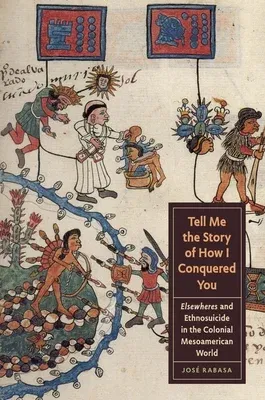Folio 46r from Codex Telleriano-Remensis was created in the sixteenth
century under the supervision of Spanish missionaries in central Mexico.
As an artifact of seismic cultural and political shifts, the manuscript
painting is a singular document of indigenous response to Spanish
conquest. Examining the ways in which the folio's tlacuilo (indigenous
painter/writer) creates a pictorial vocabulary, this book embraces the
place "outside" history from which this rich document emerged.
Applying contemporary intellectual perspectives, including aspects of
gender, modernity, nation, and visual representation itself, José Rabasa
reveals new perspectives on colonial order. Folio 46r becomes a metaphor
for reading the totality of the codex and for reflecting on the
postcolonial theoretical issues now brought to bear on the past.
Ambitious and innovative (such as the invention of the concepts of
elsewheres and ethnosuicide, and the emphasis on intuition), Tell Me
the Story of How I Conquered You embraces the performative force of the
native scribe while acknowledging the ineffable traits of 46r--traits
that remain untenably foreign to the modern excavator/scholar. Posing
provocative questions about the unspoken dialogues between evangelizing
friars and their spiritual conquests, this book offers a
theoretic-political experiment on the possibility of learning from the
tlacuilo ways of seeing the world that dislocate the predominance of
the West.

